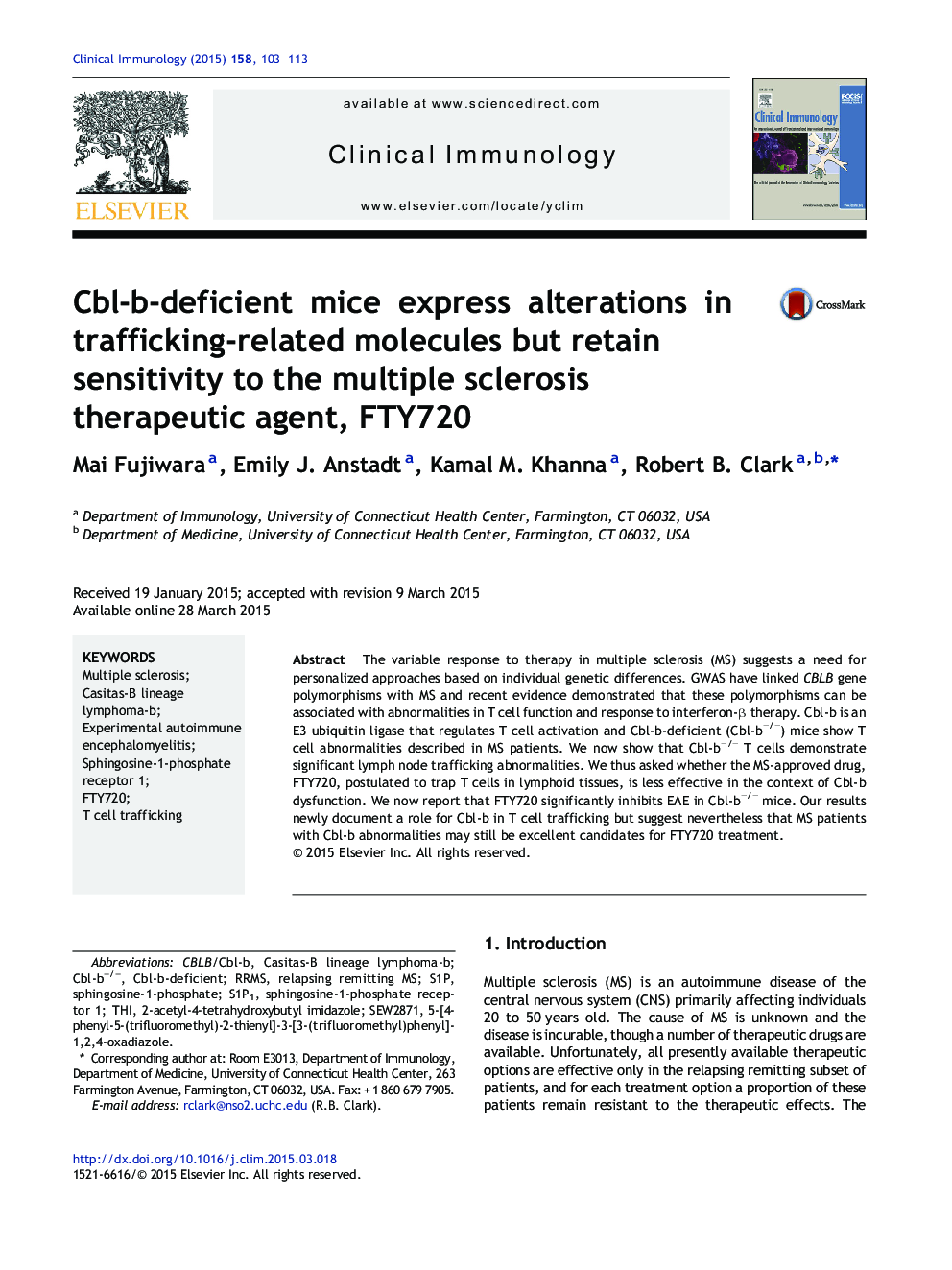| Article ID | Journal | Published Year | Pages | File Type |
|---|---|---|---|---|
| 6087297 | Clinical Immunology | 2015 | 11 Pages |
â¢Polymorphisms in the CBLB gene have been associated with MS.â¢Cbl-bâ/â T cell lymph node accumulation is abnormal after transfer into RAG-1â/â mice.â¢Activated Cbl-bâ/â T cells express enhanced S1P1 and decreased CD69.â¢Despite trafficking abnormalities the MS-approved drug FTY720 significantly inhibits EAE in Cbl-bâ/â mice.â¢Cbl-bâ/â mice may represent a new model for testing therapeutic approaches in MS.
The variable response to therapy in multiple sclerosis (MS) suggests a need for personalized approaches based on individual genetic differences. GWAS have linked CBLB gene polymorphisms with MS and recent evidence demonstrated that these polymorphisms can be associated with abnormalities in T cell function and response to interferon-β therapy. Cbl-b is an E3 ubiquitin ligase that regulates T cell activation and Cbl-b-deficient (Cbl-bâ/â) mice show T cell abnormalities described in MS patients. We now show that Cbl-bâ/â T cells demonstrate significant lymph node trafficking abnormalities. We thus asked whether the MS-approved drug, FTY720, postulated to trap T cells in lymphoid tissues, is less effective in the context of Cbl-b dysfunction. We now report that FTY720 significantly inhibits EAE in Cbl-bâ/â mice. Our results newly document a role for Cbl-b in T cell trafficking but suggest nevertheless that MS patients with Cbl-b abnormalities may still be excellent candidates for FTY720 treatment.
